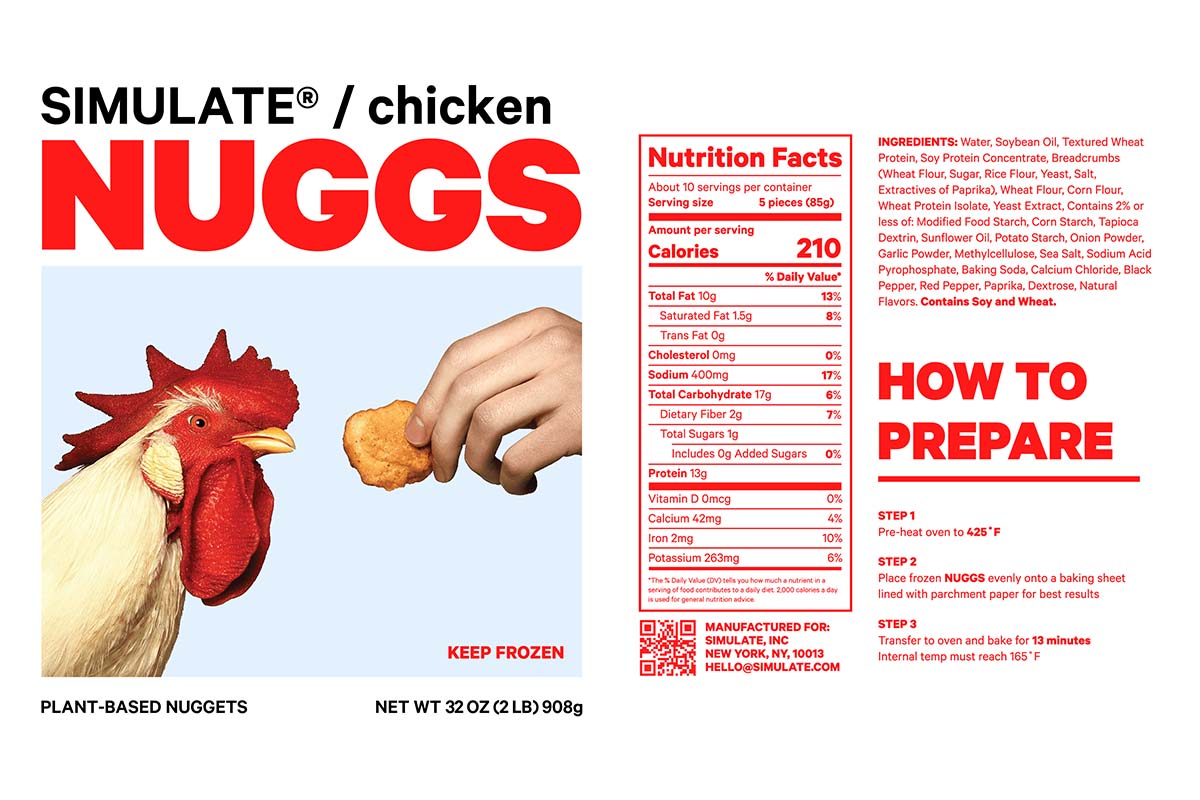Last December, a South Dakotan cattle veterinarian named Dr. James Stangle went viral for a spirited hit piece in a digital agriculture publication called the Tri-State Livestock News. His essay argued against eating Burger King’s then-new Impossible Whopper, the burger made with plant-based beef from Silicon Valley’s Impossible Foods. Many Americans probably don’t recall the exact details of the saga, which is fair enough — this last year has felt more like 10 — but its core thesis, something about “men + fake meat = breasts,” has persisted in the months since, particularly in the trenches of Twitter.
Dr. Stangle cautioned that Impossible’s meat substitute, which debuted in the spring of 2019 and started earning contracts with fast-food joints across America later on in the year, contained “18 million times as much estrogen as a regular whopper.” He reasoned that eating four Impossible Burgers a day was enough to “grow boobs on a male.” Dr. Stangle’s conclusion appeared in headlines all across the internet, then broke Facebook’s algorithm, because of course it did. There was only one problem: it wasn’t true.
Writers from The Atlantic, The Washington Post and even Fox News were all quick to point out that the soy in Impossible meat does not include estrogen as we’re familiar with it (a mammalian hormone), but phytoestrogen, a compound found in plants. Nations that top the charts in soy consumption, which are mostly Asian, have not reported gynecomastia (the swelling of male breast tissue) at heightened clips. Meanwhile, the link between soy isoflavones and a reduction in testosterone has proven dubious in clinical research. If overdosing on soy phytoestrogen does wacky things to the male body, science just hasn’t seen it yet. In fact, soy-rich diets have actually been connected with improvements in heart health and blood pressure.
The least expected fact check in the aftermath of Dr. Stangle’s story came from Dr. Stangle himself. Not long after becoming an overnight folk hero for hundreds of thousands of cattle ranchers and millions of carnivores across the country, Dr. Stangle walked back his wildest takes, admitting that there was no proof that plant-based meat contained “18 million times as much estrogen” as it bovine equivalent, and no evidence that eating four Whoppers a day would lead to a man growing breasts. It was a rare, somewhat noble effort by Dr. Stangle — who clearly regretted taking scientific liberties while writing for a small-time digital paper — to save face and change minds.
But it was too late. As Dr. Stangle pointed out to The Atlantic: “The retraction didn’t get much traction.”
Spend enough time reading subtweets or Instagram comments online, and it won’t be long before you encounter some brand of performative male insecurity. Consider: misogyny towards female athletes, homophobia towards happy couples or machismo toward strangers who think your favorite team sucks. There isn’t a single topic or medium that’s safe from the wrath of a man who wants to type about something he doesn’t want to understand. The other day, I came across a company on LinkedIn that sells jeans with elastane weaved into the fabric, which makes the pants a bit tighter around the calves. In the comments section of the post, men were riffing on how emasculating the look was — only that wasn’t their word of choice.
To be clear, Dr. Stangle is not responsible for the actions of the many men who get their afternoon kicks riffing publicly about plant-based boobs. According to Google Trends data, search traffic for “plant-based meat” has exploded in the last five years, increasing by 950%. The mainstream meatless revolution that Impossible Foods (and competitor Beyond Burger) precipitated in 2019 has only picked up steam in 2020 as sales of alternative meat products have gone up by 264%. When the meat industry’s supply chain fell apart during the early weeks of the COVID-19 outbreak, many curious customers turned surprisingly committed. The worldwide web has faithfully reported on all of these developments, from plucky documentaries to pricey IPOs.
And all that attention has not gone unnoticed by the never-plant-based bros. The lingering issue with Dr. Stangle’s oped is that it’s morphed into a kind of pseudoscientific apocrypha for men who are frustrated, confused or just generally uninformed about what it means to eat a plant-based burger. Commenters no longer link to the article (if they even know what it is) — which is a shame, as it would show Stangle’s retractions — but simply cite the same one-liner they read from some other man, a week ago, somewhere else on the internet: Don’t eat that, it’ll give you breasts. And there’s nothing less manly than turning into a woman.
If any of this sounds somewhat familiar, that’s because men used to log widespread concerns about growing breasts from consuming soy milk. At the time, scientists dug into the question and concluded that “isoflavones do not exert feminizing effects on men.” Later on, researchers became amused that they had to keep addressing the issue. In 2015, Christopher Gardner, a professor of medicine at Stanford, said to Vox: “I’ve consumed soy for 30 years, every day, and have never had to buy a bra.” Soy milk feels like small potatoes compared to the current state of the discourse, though, where meatless products, male insecurity and the age of misinformation have all gloriously collided.
Men have a special incentive to resist the replacement of meat. Studies have indicated that for many men, meat consumption is critical to their understanding of self. It’s not just that they can’t imagine a dish without it — they can’t imagine life without it. They rely on it for pleasure as well as for protein; according to one study, men with low self-esteem are more likely to increase their red-meat consumption as a compensation mechanism. It should come as little surprise that at the end of the day, men eat more meat, kill more animals and are half as likely as women to consider a vegetarian or vegan diet. There is an outdated notion, which manifestos like The Sexual Politics of Meat have been challenging for decades, that more meat is the key to more manliness, more strength and more virility.
But in reality, eating too much meat is a fast-track to poor fitness. In 2016, the United States government added cautionary language to its annual dietary guidelines, which read: “Some individuals, especially teen boys and adult men, also need to reduce overall intake of protein foods by decreasing intakes of meats, poultry, and eggs and increasing amounts of vegetables or other under-consumed food groups.” More than 40% of American men are obese, and meat — which has been linked to weight gain, cancers and cardiovascular diseases — is not helping. The race for more protein takes place on a road to nowhere: American men between the age of 30 and 39 already get double their daily recommend amounts, yet they eat less than half the amount of fiber they should be eating each day.
That’s not to say that plant-based meat is some obvious, healthy alternative. If Dr. Stangle was right about one thing, on a macro level at least, it’s that eating four Impossible Whoppers in one day is a terrible idea. Plant-based burgers can pack a ton of sodium, and if you’re eating them with the usual accoutrement — white bread bun, cheese, condiments, chips — you’re a far cry from a garden salad. But you’re also not going to grow a pair of boobs.
Ironically, the best shot you have of actually developing fatty tissue around your chest is by eating a ton of foods high in fat, like … red meat. The best way forward, as vegan bodybuilder Nimai Delgado points out in his Instagram post above, is a mix of smart preparation and moderation.
There’s no imperative to swear off meat. But there’s also no need to swear at those who do. Trotting out willfully ignorant zingers is a waste of time at best, and at worst, a dangerous way to spread misinformation and misogyny. Anthony Bourdain was right: “There’s nothing more political than food.” But haven’t we all had enough of politics this year? Let’s give the plant-based burgers a break, and while we’re at it, let’s stop ridiculing those who eat soy. The two countries with the most soy-rich diets, Japan and Hong Kong, are also at the top of the world in life expectancy. What could be “manlier” than living a long, full life?
This article was featured in the InsideHook newsletter. Sign up now.





















